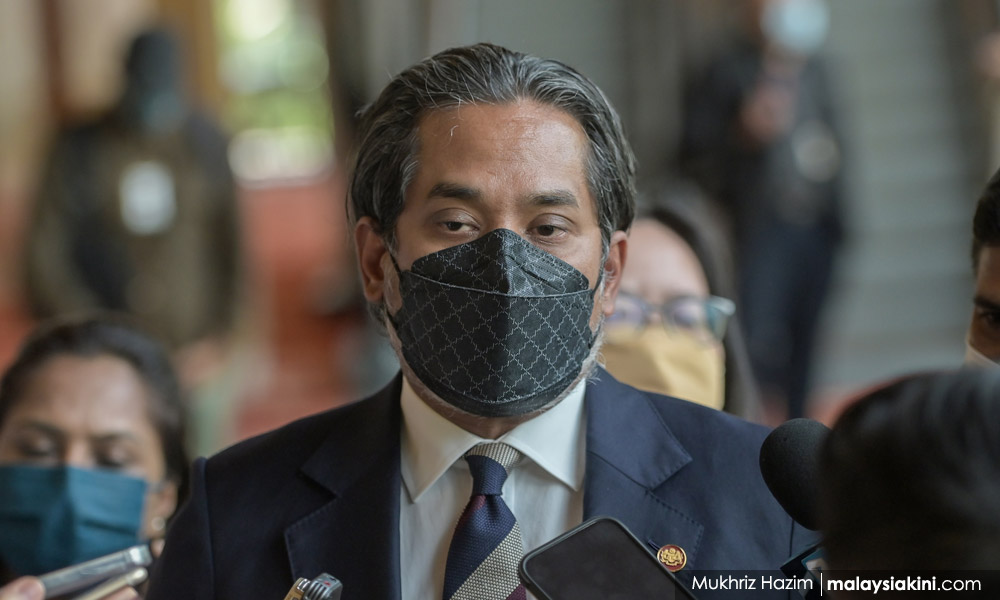The government has introduced virtual consultations by a medical practitioner for supervised self-administered RTK-Ag testing for those unable to go to a health facility.
At a broadcast press conference today, Health Minister Khairy Jamaluddin said this would save time and cost, as well as reduce the risk of infection to others.
The facility will most likely be used by travellers, he said, who are required to perform a professionally conducted RTK-Ag test by various countries including Malaysia, rather than an unsupervised self-test.
He said the initiative is based on Malaysian Medical Council’s (MMC) virtual consultation guidelines.
The procedure can only be performed by a medical practitioner registered with the MMC and the session must be conducted live to prevent fraud, which could occur if video recordings were permitted.
The test results acquired during the virtual consultation session would then be reported to an online platform.
Khairy added that medical practitioners must ensure the use of appropriate technology and comply with user privacy requirements.
They must also ensure information provided by users is authentic, conduct an assessment of the health status of users, as well as provide information on ventilation, personal hygiene, and proper disposal of test kits.
He added that medical practitioners must ensure users adhere to sampling procedures stated in the test kit manual, ensure there is a unique identifier on the test kit used by each user to prevent forgery and duplication, and ensure the results are uploaded onto the online platform.
The platform is accessible only to medical practitioners. Unlike RTK-Ag self-tests, the test results are not to be uploaded through MySejahtera.
Variation in self-test kits
Meanwhile, it was announced that the Medical Device Authority (MDA) revoked authorisation for two brands of Covid-19 self-test kits after finding their performance to be below par.
Khairy said today that before being sold on the market, all approved Covid-19 self-test kits have undergone evaluation by an expert committee and subsequent laboratory testing to validate their performance.

However, he clarified, that because the test kits are manufactured in different lots, there may be variations in the performance of different lots that may have gone undetected prior to market release.
“In addition, when the test kits are distributed and sold in the market, their performance may have deteriorated as they may be exposed to high temperature during transportation or storage,” he added.
He said that out of the 22 test kits on the market that have been tested by the MDA, 12 results have been obtained with two not up to the set standard.
“MDA will continue to carry out market surveillance to monitor the performance of the test kits in the market and will update the results from time to time.
“The supplier of any test kit that is not meeting the set standard will be asked to conduct the necessary investigation and take the appropriate corrective actions to restore the performance of the test kit.
“The approval for the test kit will be suspended pending the investigation,” he assured.
The two affected brands were the Wizblue brand manufactured by Anhui Deepblue Medical Technology Co and the Wizbiotech brand manufactured by Xiamen Wiz Biotech Co, both based in China.
They were registered in Malaysia by Innovac Technology Sdn Bhd and Conan Medical Technology Bhd, respectively.
The MDA’s website currently shows there are 128 Covid-19 self-test kit brands that have been conditionally approved for the Malaysian market.
The entry for the two recently rejected kits appears to have already been removed. - Mkini



No comments:
Post a Comment
Note: Only a member of this blog may post a comment.